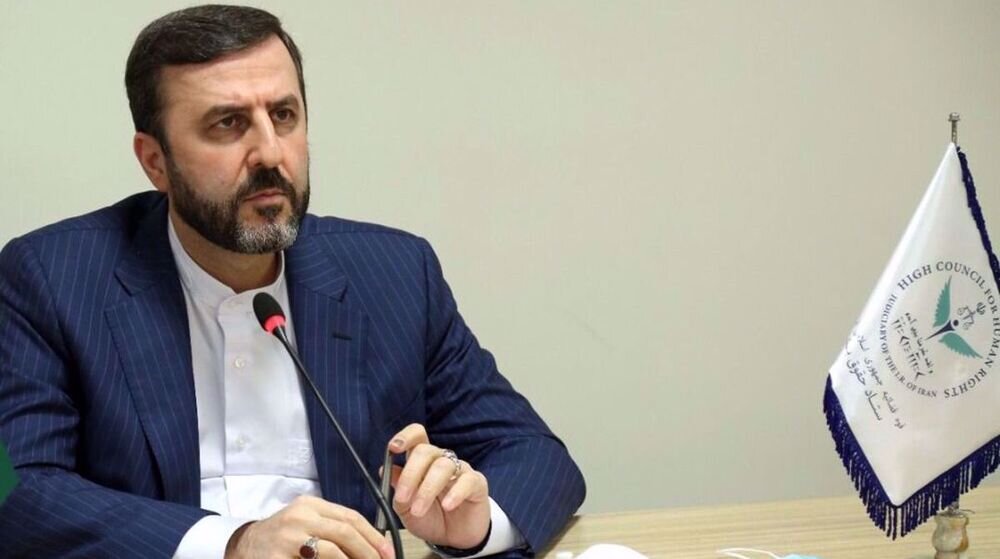Iranian rights chief criticizes UK envoy’s hypocritical position on free speech

TEHRAN- The British ambassador to Tehran, Simon Shercliff, has come under fire from Iran’s top human rights official for taking a “hypocritical” attitude toward journalists and freedom of expression in the Islamic Republic.
Shercliff had urged the Iranian authorities to “release all individuals arbitrarily detained, including all journalists” in an interventionist post on X, on Tuesday.
He was alluding to the journalists who were imprisoned in Iran after the riots that hit the country in the autumn of 2022. Some are presently in custody while their connections to the riots are being looked into.
“Does the British ambassador, who has hypocritically commented on journalism and freedom of expression and posted tweets, have the courage to express concern about the situation of journalists in his own country and pay tribute to them?” asked Kazem Gharibabadi, secretary of Iran’s High Council for Human Rights, on Thursday
He questioned if the British envoy had any explanations for the predicament facing journalists in his own nation.
Martin Banks, Rich Felgate, and Rita Pal were among the British journalists mentioned by Gharibabadi who had been held in the UK on various charges.
On Wednesday, Iran’s Foreign Ministry summoned the British envoy to express strong opposition to his remarks, which were antithetical to diplomatic conventions.
Iran maintained that foreign-backed individuals exploited the tragic death of Mahsa Amini – a young woman who died in hospital on September 16 three days after she fainted in police custody in Tehran - to foment insecurity throughout the country during the riots that hit the country in 2022.
Tehran has summoned the British ambassador many times over the past few months in protest of the UK’s backing for protesters.
Iran asserted that the London-based media outlets, including BBC Persian and Iran International, launched “media terrorism” by encouraging violence and destruction in the country.
Back in April, Gharibabadi blasted international institutions for failing to take a stand against the degradation of human rights conditions in Western nations.
“The world suffers from fundamental challenges and dilemmas regarding human rights, mainly caused by the actions of countries that claim to be defending human rights and see themselves in the position of making demands of others and being immune from any criticism and responsibility,” Gharibabadi said in a letter to Volker Turk, the UN High Commissioner for Human Rights.
“In these circumstances, it is crucial for the international human rights institutions to uphold independence, impartiality, professionalism, and non-selectivity in order to protect and advance human rights. Adopting politically-motivated and selective approaches is harmful to human rights, does a terrible injustice to them, and undermines public confidence in human rights procedures,” added Gharibabadi.
He alerted the commissioner to “certain circumstances during the last six months in numerous nations involving the right to freedom of assembly and of association,” noting that “France often observes enormous public protests against the government’s policies.”
The human rights chief went on to say, “Up to two million people have taken part in demonstrations in some instances. The French government used extensive violence to disperse the protests rather than paying attention to their concerns and working to improve the situation. The French government’s response included using anti-riot equipment, beating civilians, and rounding up thousands of demonstrators.”
Leave a Comment